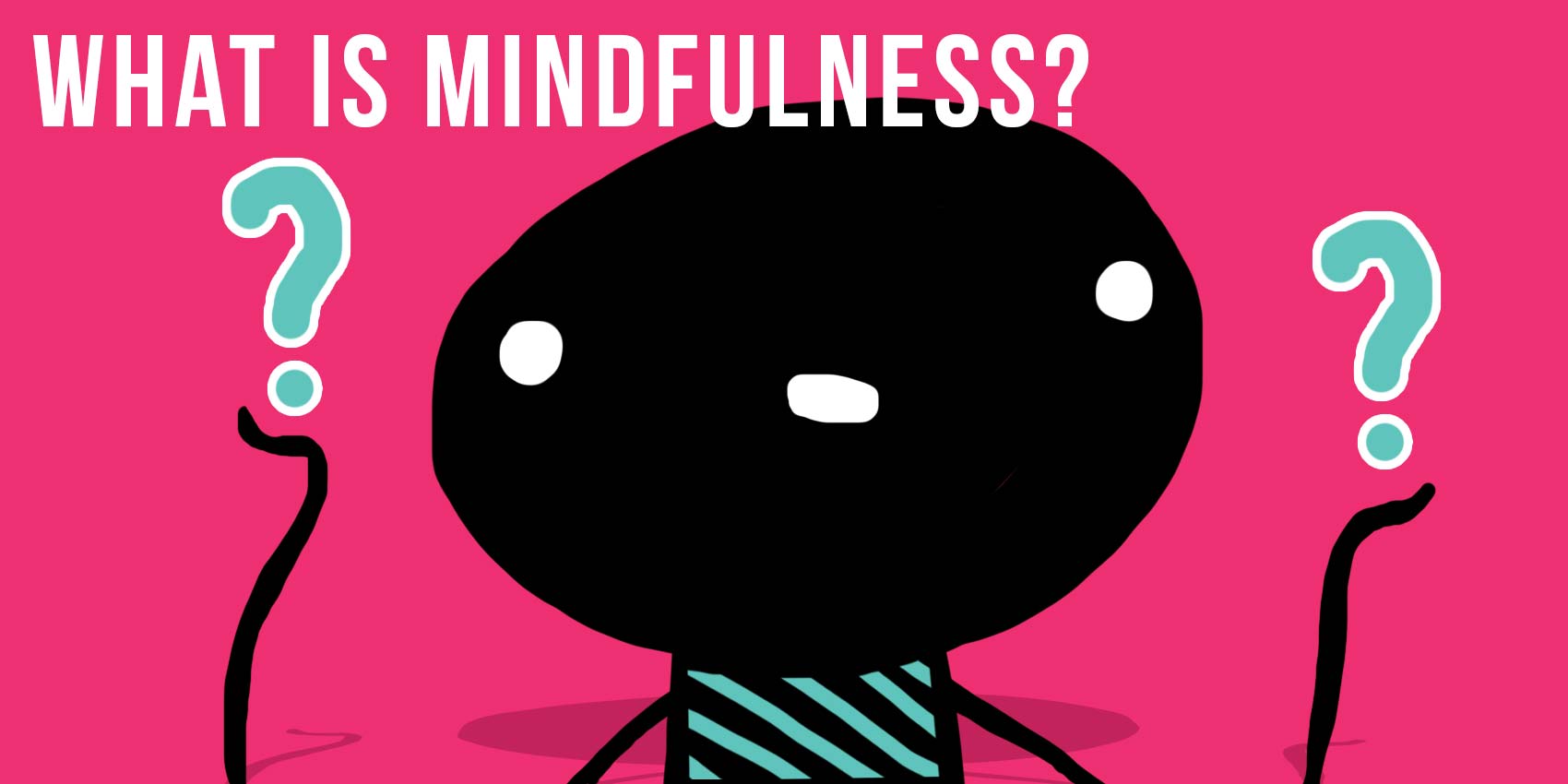03 Mar What is mindfulness?

Mindfulness is the ability to focus and be present to your thoughts and feelings (even the way your body feels) without any judgment and regardless of what you’re doing. You do this for a specific period of time of your choosing.
Yep. That’s it. That’s what all the fuss is about.
For example, a mindfulness exercise could be to focus on your breath for five minutes, concentrating on what it feels like as you inhale and exhale, shifting your attention to the sound, the feeling in your lungs, your chest expanding, etc.
Or another exercise might be to sit quietly and focus on the sounds around you – Was that the wind? The rustle of leaves? Cars going by? That’s quite a storm! What are the sounds and how do they make you feel?
Or another mindfulness exercise might be to slow down at dinner and focus intently on the taste of your food in your mouth while chewing slowly. How does it feel? Do you enjoy it? Is it salty? Sweet? How does it feel as you swallow?
Simply put, mindfulness is awareness. (Totally achievable stuff. You got this.)
So the first part of mindfulness is simply being focused and present in the moment as these examples show. The second part is to allow the experience to happen without judgement. As you do this, you train your mind to let go of other distracting thoughts that can often feel overwhelming.
But how do you do this without judgment? What does that mean? It means that whatever you are thinking or feeling is okay. For example, if you try to focus on your breathing and suddenly find yourself thinking about the test you have next period, that’s okay. Thinking, See! I can’t do this mindfulness stuff. I suck at it! I can’t even focus on one thing! is a judgement thought. Instead, a nonjudgmental stance would notice that you have lost focus on your breathing and then would just return to focusing on it. The thought might go something like, Oops. Wow! Now I am thinking about my test. I wanted to think about my breathing. I’m just going to think about that now instead. That’s it. No judgement. The loss of focus is simply noticed and you get back on track. No beating yourself up for it. No giving it extra meaning, like Wow. I must need to think about that. Just notice and move on. That’s non-judgement.
Recap: Mindfulness is being present in the moment without judgement.
And why is this helpful you might ask?
For starters, it quiets all the chatter – especially the negative chatter – that sometimes fills our mind. Keep reading to learn more!




Francesco Michilli
Posted at 14:41h, 28 FebruaryYes because it helps you feel less stressed, and helps your brain regroup, and relax.
WLKHS2407
Posted at 17:00h, 27 FebruaryI do not practice mindfulness at all because i a m always a chill and calm person, i don’t need t0 practice being mindful because i already care bout the way i talk to people and im open minded.
WLKHS2408
Posted at 16:53h, 27 FebruaryHonestly, I do not really practice mindfulness. The article said the first part about being mindful is being focused and present in the moment but, recently I just have not been focused or present in the moment at all. The second part is to experience without judgement but I feel like that is also not true.
wlkhs2221
Posted at 17:40h, 26 FebruaryI don’t practice mindfulness regularly, because I don’t think that it helps me. I am never that stressed that I need a moment to focus on my breathing. If I am stressed I feel like worrying about others things will distract me even more.
WLKHS2223
Posted at 17:39h, 26 FebruaryI do not intentionally practice mindfulness regularly, however, if I am not doing anything at a specific moment, I may consider myself being mindful from time to time for I take in what is happening around me. For example, if I am in a quiet classroom and finish the work I am working on, I focus on my surroundings, which are students writing or typing, with the clock ticking away. Additionally, if I am reading a book, I let the thoughts inside my mind flow peacefully because there is nothing bothering me in the moment.
WLKHS2203
Posted at 17:36h, 26 FebruaryThroughout my daily life,I don’t observe myself being mind full however I personally think that I practice being mind full throughout my daily routine without even noticing it. During certain situations, I am mind full and i often keep to myself sometimes without feeling like i’m being judged however, I do often catch myself feeling judged by others.
wlkhs2304
Posted at 01:34h, 03 Marchdon’t really practice mindfulness. most of the time i don’t since i sometime i feel that I don’t really need it. also since I know how to relax and know clam myself to not overwhelm myself.